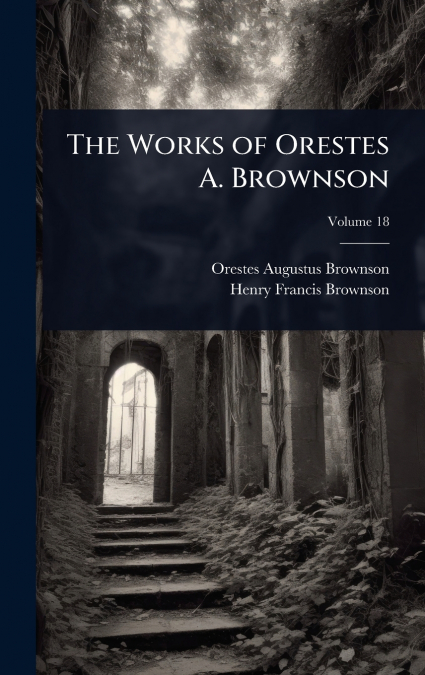
Henry Francis Brownson / Orestes Augustus Brownson
This volume of âThe Works of Orestes A. Brownsonâ offers a comprehensive look into the writings of one of America’s most profound and controversial thinkers. Orestes Brownson (1803-1876) was a prominent intellectual, essayist, philosopher, and social critic whose journey led him from Presbyterianism to Transcendentalism and ultimately to Roman Catholicism. This collection, carefully curated and edited, presents Brownson’s reflections on faith, reason, politics, and society during a transformative period in American history. Readers will find essays and treatises that delve into the complex interplay between religious doctrine and political philosophy, revealing Brownsonâs evolving perspectives on issues such as democracy, individual rights, and the role of the Church in public life. His incisive analysis and unwavering commitment to truth make this volume essential for anyone seeking to understand the intellectual currents that shaped 19th-century America. Discover the enduring relevance of Brownson’s thought as he grapples with questions that continue to resonate today.This work has been selected by scholars as being culturally important, and is part of the knowledge base of civilization as we know it. This work was reproduced from the original artifact, and remains as true to the original work as possible. Therefore, you will see the original copyright references, library stamps (as most of these works have been housed in our most important libraries around the world), and other notations in the work.This work is in the public domain in the United States of America, and possibly other nations. Within the United States, you may freely copy and distribute this work, as no entity (individual or corporate) has a copyright on the body of the work.As a reproduction of a historical artifact, this work may contain missing or blurred pages, poor pictures, errant marks, etc. Scholars believe, and we concur, that this work is important enough to be preserved, reproduced, and made generally available to the public. We appreciate your support of the preservation process, and thank you for being an important part of keeping this knowledge alive and relevant.